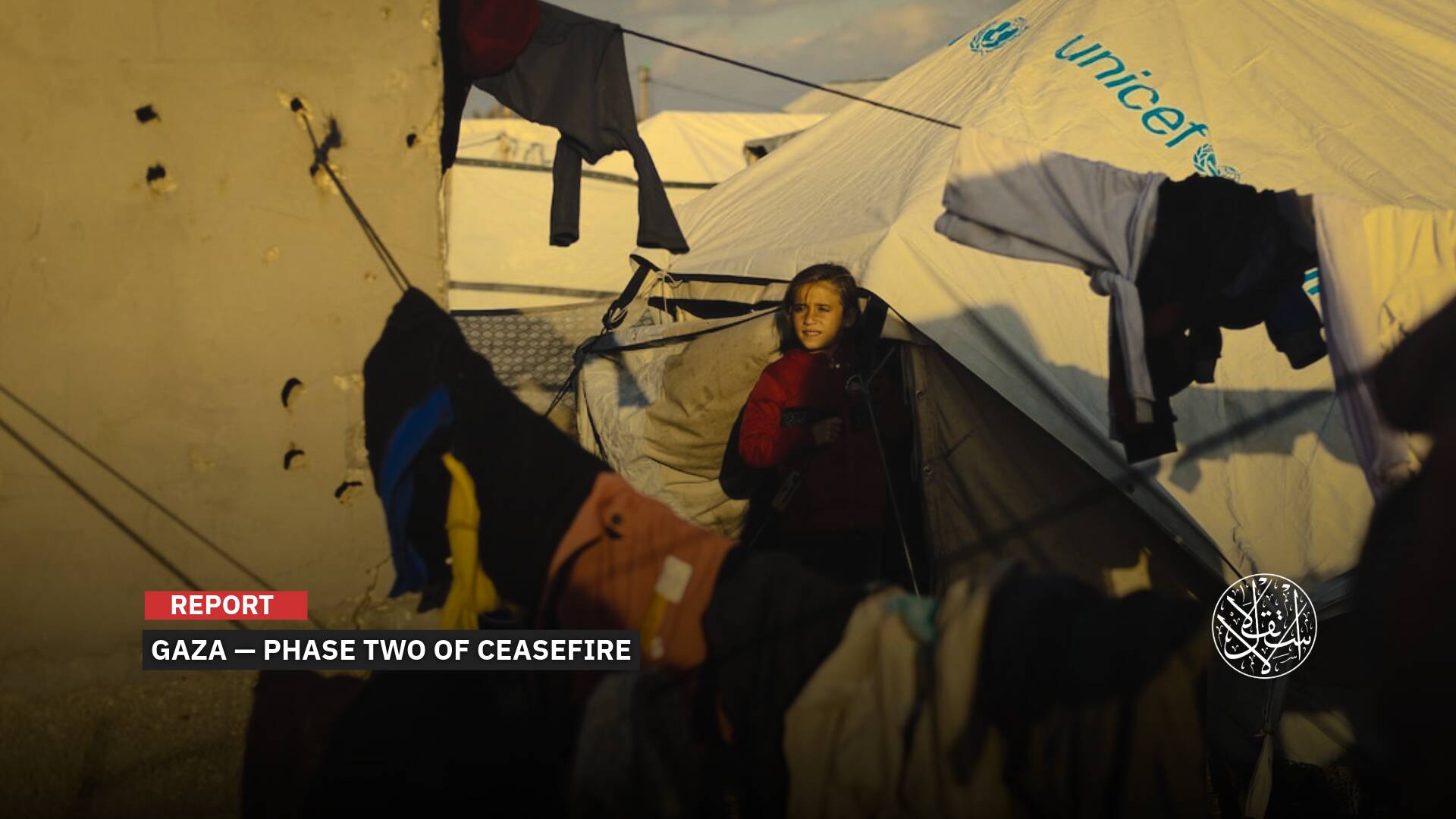Why Did the Netherlands Temporarily Lift Restrictions on Refugee Reunification?

Although the Netherlands is Europe’s top spot for asylum-seekers after Germany, this country decided to temporarily suspend the restrictions imposed on the reunification of those refugees, in a move labeled as a “legal victory” for those dreaming of a new future away from their countries’ war.
Refugees and local human rights organizations succeeded in urging Amsterdam to step back after successful complaints they filed against a procedure preventing asylum seekers from joining their families that have obtained residency in the Netherlands.
Suspension Restrictions
The Netherlands imposed restrictions on family reunification in August 2022, when the country was facing a housing crisis with the large number of asylum seekers in unprecedentedly crowded shelters.
Hundreds of them were sleeping in unsanitary conditions outside the country’s main migrant reception center in the northern village of Ter Apel, which raised concerns of losing control.
The Dutch Minister of Justice and Security, Eric van der Burg, announced on January 11, 2023, that the restrictions introduced in 2022 will remain suspended until the Dutch administrative courts issue a final decision on the matter.
The Dutch government has ruled that family members of asylum seekers who have been granted residency will not be required to wait 15 months before they can join their families.
This came after the government decided that it should take care of asylum seekers already in the Netherlands and then continue with family reunification.
The Dutch courts ruled that family reunification should continue after deeming that the step to stop it was illegal; judges stated in their ruling that this violated national law and international agreements.
On August 27, 2022, hundreds of asylum seekers who had been living in tents outside a detention center in Ter Apel, in the north of the Netherlands, were relocated to other locations in various parts of the country.
The Red Cross and the Dutch Doctors Without Borders warned of the imminent humanitarian emergency in the shelter, where more than 700 men slept outside the center for weeks, hoping to find shelter while their files were being studied.
Promises of a Structural Solution
The conditions are so bad that the Dutch Doctors Without Borders has sent a group to take care of the migrants, the first time the agency has been deployed in the Netherlands, in an effort to ease overcrowding.
The Dutch Refugee Council strongly criticized this policy, calling for its abolition and describing it as “politics in its worst form.”
Dutch Prime Minister Mark Rutte admitted that there were shameful scenes in the center and that mistakes had been made, promising a structural solution to solve the problem.
On August 26, 2022, the Dutch government announced measures to address the crisis of lack of staff in the Dutch Refugee Agency and the lack of housing in the country.
During that period, the government confirmed its approval of the asylum requests of about 16,000 people who did not have a house and were forced to stay in the centers, and stipulated that it would not accept the arrival of their families until finding housing for them.
According to the Dutch Statistics Office (CBS), immigration contributed to raising the number of Dutch people to 17.8 million, and the number is increasing, according to the Londynek website, at the end of October 2022.
Most of the new immigrants for 2022 came from Ukraine, representing 30%, also from Syria and several other Asian countries such as Afghanistan, India, and Turkiye, and settled in the center of the country, especially in the cities of Amsterdam, The Hague and Rotterdam.

In the first six months of 2022, some 5,700 refugee relatives came to the Netherlands for family reunification. In total, about 20,000 new asylum seekers arrived during this period.
During 2022, the Dutch Council of Ministers concluded another agreement with the municipalities regarding the reception of refugees. The municipalities must secure housing for 20,000 residency holders at a time when there are approximately 17,000 still living in centers for asylum seekers.
The government will provide 15 million euros to set up an additional reception area for asylum seekers; Van der Burg said he hoped the new area would be ready by September 10, 2023.
Deliberate Action
In this context, Obada al-Mohammed, a Syrian refugee in the Netherlands, explained to Al-Estiklal that getting a house from the municipality in the Dutch provinces is difficult.
Therefore, the new decision allows the asylum seeker to reunite his or her family immediately after obtaining approval without the condition of having a home.
Al-Mohammed believed that “the Dutch government’s retreat is due first to the movement of local organizations supporting refugees. Secondly, it is most likely that the decision to suspend family reunification, due to the huge numbers of refugees who arrived in the Netherlands in 2022, was issued to reduce the number of asylum-seekers and to absorb Ukrainian refugees after they were given priority at the expense of other nationalities.”
He added: “At that time, a proposal was made to convert the ships into housing for refugees. Indeed, many refugees were transferred to live in Arnhem and Amsterdam, as well as in residences belonging to Delft University. This created a large deficit for the government, prompting it to tighten asylum procedures.”
“The local and international media’s shedding light on the reality of the refugee crisis prompted human rights groups to move and reach the Dutch courts.”
The Syrian refugee said: “Currently, because of winter, immigration has stopped, and there is no longer any pressure on the government, which prompted it to suspend the decision temporarily, and this gives the Netherlands space to reactivate it according to the percentage of refugees.”
The Netherlands has become the first destination for refugees due to its quick reunification procedures, unlike other European countries.
Labor Incapacity
Al-Mohammed pointed out that “the Netherlands is in great need of a labor force due to the high proportion of elderly people within Dutch society, and therefore asylum seekers are considered the engine of the country’s economy, especially after the high numbers of deaths during Corona pandemic that led to many homes becoming nearly empty.”
He noted that “the old refugees for decades are Moroccans and Turks, and these have become Dutch citizens. Therefore you see them involved in the labor market through small projects such as food stores and companies, including employees and managers in municipalities; some of them have even entered the dome of Parliament.
“As for the Syrians, they are new in the Netherlands, so some of them work as barbers, or in restaurants, and also in postal parcel delivery. In addition to that, there are those who get jobs in companies working in the electricity and electronics sector and others.”
During December 2022, a court in Harlem ruled that a Syrian woman had the right to be reunited with her children, and the court confirmed at the time that this took precedence over the government’s need to manage the housing crisis, saying that the temporary ban violated Dutch law and European guidelines.
According to the Syrian refugee, asylum was one of the thorniest issues for the current Dutch government, which is considered among the European countries that call for fiscal austerity.
Despite parties pushing for a more restrictive immigration policy, there are parties that threaten to vote against such projects, which allows the government in The Hague to force local authorities to shelter refugees.

In November 2022, 3,980 asylum seekers arrived in the Netherlands altogether. This is 70 more than in the previous month. In addition, 375 following family members arrived, 285 more than in October 2022. In total, 34,860 asylum seekers and following relatives entered the country in 2021. The number of asylum migrants peaked in 2015, when the war in Syria caused a large influx of refugees. Subsequently, the number of following family members peaked in the last quarter of 2016 and the first two quarters of 2017, according to CBS-Statistics in the Netherlands.
The Dutch Ministry of Justice and Security confirmed that 22,820 Syrians who hold residency and work permits obtained Dutch citizenship until April 2021.
About 55,000 refugees are expected to arrive in the Netherlands in 2023, according to the Dutch News website, in its report published on January 10, 2023.
The Dutch Minister, Eric van der Burg, said in December 2022 that there were sufficient accommodations available in the short term.
However, the issue is likely to be on table again in April 2023 after the closure of temporary facilities in Amsterdam, Dronten, and Velsen with a capacity of 4,000 beds, according to the minister.











